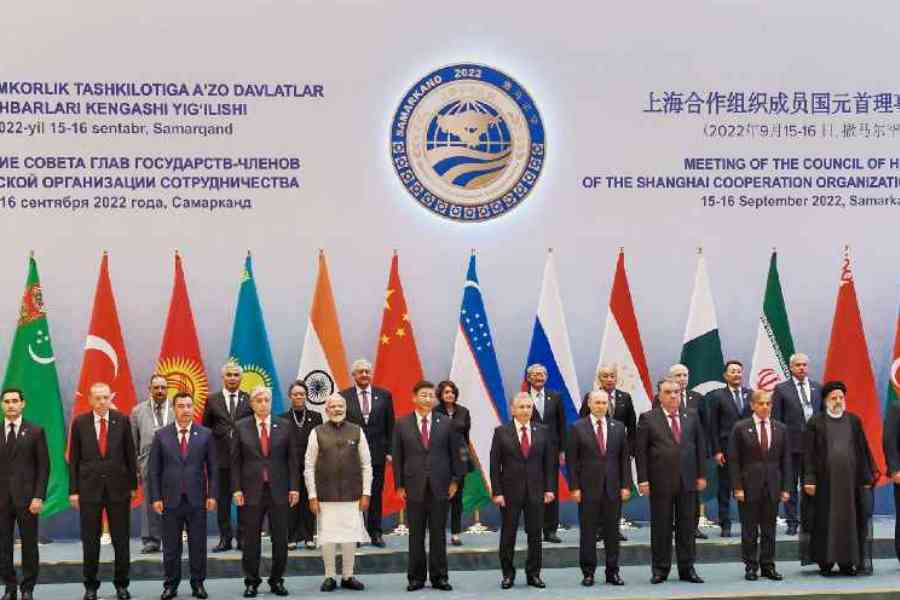When leaders of many nations get together for a conclave, the public message they seek to project is usually one of unity and consensus on key issues. The annual Shanghai Cooperation Organisation summit, held on July 4 and chaired by Prime Minister Narendra Modi, underscored just how difficult any such signalling has become in a deeply fractured world. The SCO meet was held virtually and attended by the Chinese president, Xi Jinping, the Russian president, Vladimir Putin, the Pakistani prime minister, Shehbaz Sharif, and the leaders of Kazakhstan, Uzbekistan, Kyrgyzstan and Tajikistan, the other full members of the grouping. On the surface, the SCO appears to be growing in its ambitions, with more nations queueing up to associate with it. For instance, the summit led to the formal inclusion of Iran as the grouping’s ninth member. The SCO also began the process of including Belarus, a close ally of Russia, as a member. Earlier this year, Saudi Arabia, too, indicated a desire to strengthen its ties with the SCO.
Yet, what appears to be holding the SCO together is only the glue of a multipolar promise. At a time when contradictions between the United States of America and its Western allies on the one hand and China on the other are sharpening and the world appears to be on the verge of a new Cold War, India and many other nations are seeking to resist being forced to pick sides. Instead, they see themselves, individually or collectively, as alternative poles in a new world order. But there is little that binds these nations beyond that hope. The recent SCO summit revealed the deep schisms among its members and what they want from the grouping. Mr Modi and Mr Sharif launched thinly veiled barbs at each other's countries on terrorism and the state of affairs in Afghanistan under Taliban rule. Mr Putin andMr Xi both pitched for greater economic integration within the SCO and a deeper focus on security cooperation. India, meanwhile, is wary of the SCO being viewed by the West as an imminent military coalition or alliance. It also refused to sign onto parts of the joint declaration at the end of the summit that endorsed China's Belt and Road Initiative — which passes through Pakistan-occupied Kashmir — and a Chinese economic plan. Kazakhstan, a close Russian partner, has also drifted away from Moscow in recent months.
None of this is unique to the SCO. The increasingly tense geopolitical landscape, especially following Russia's full-fledged invasion of Ukraine in 2022, has showed up in the form of a lack of consensus at G20 meetings hosted by India this year too. Close Indian friends like the US, Canada and the United Kingdom appear unwilling or unable to stop Khalistani extremists from attacking Indian diplomatic missions in their territories or from threatening Indian diplomats. In such a climate, New Delhi must hedge its bets carefully. That alone will help it defend Indian interests.










